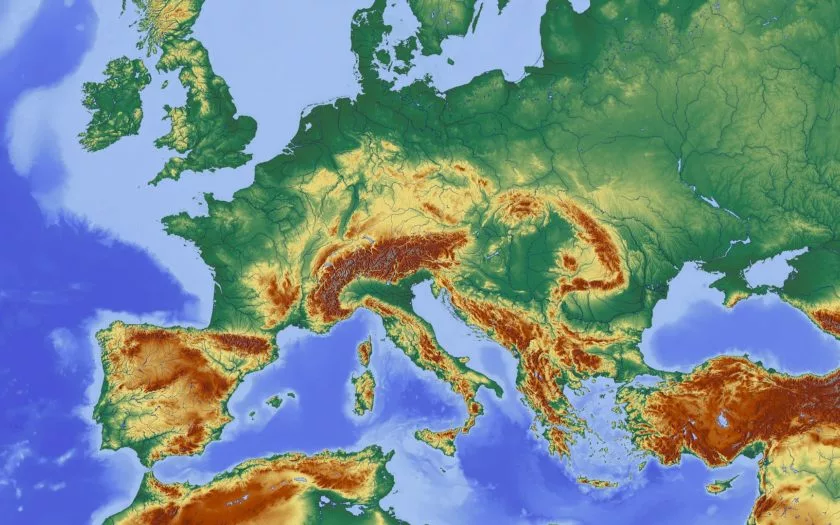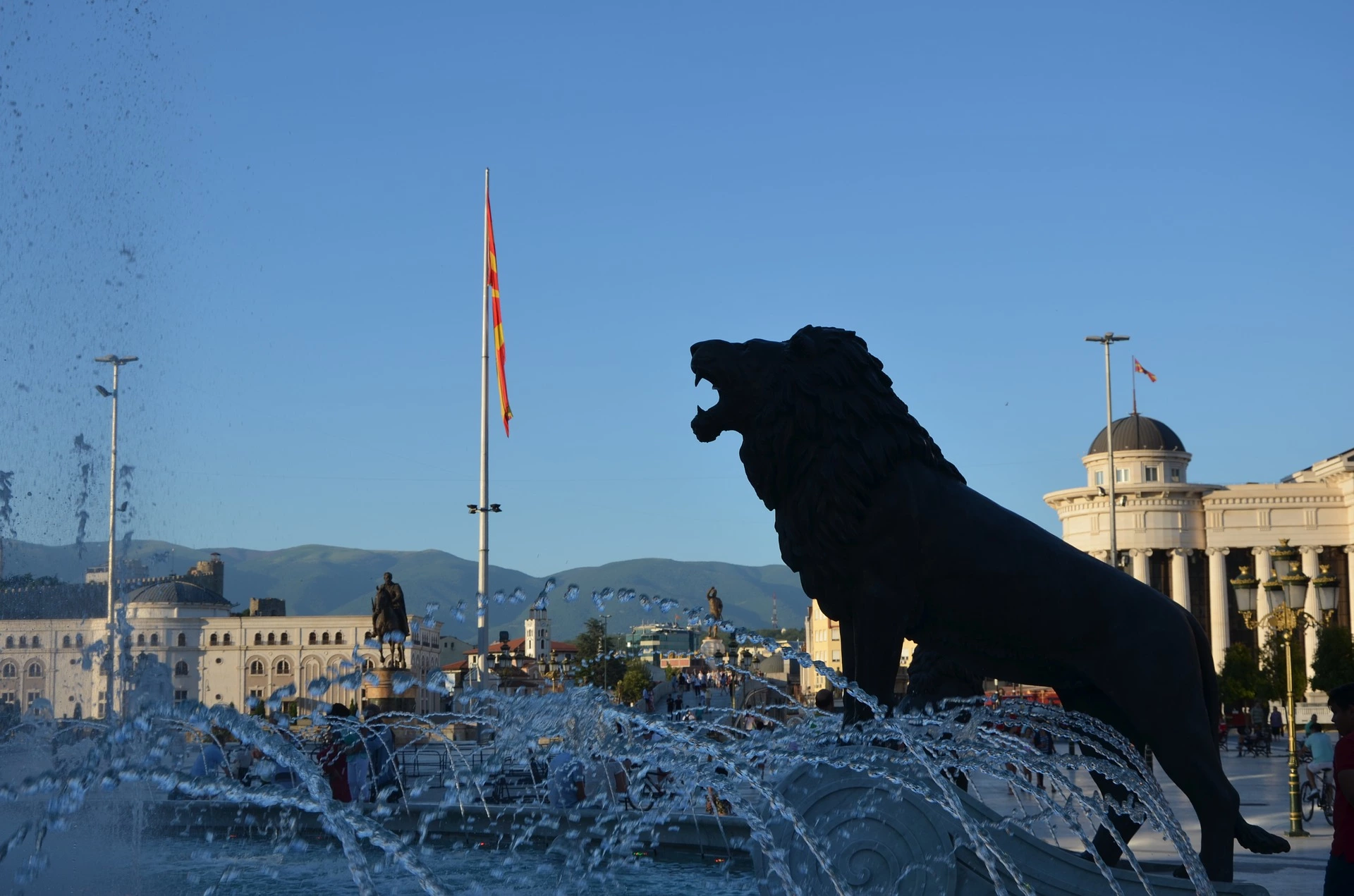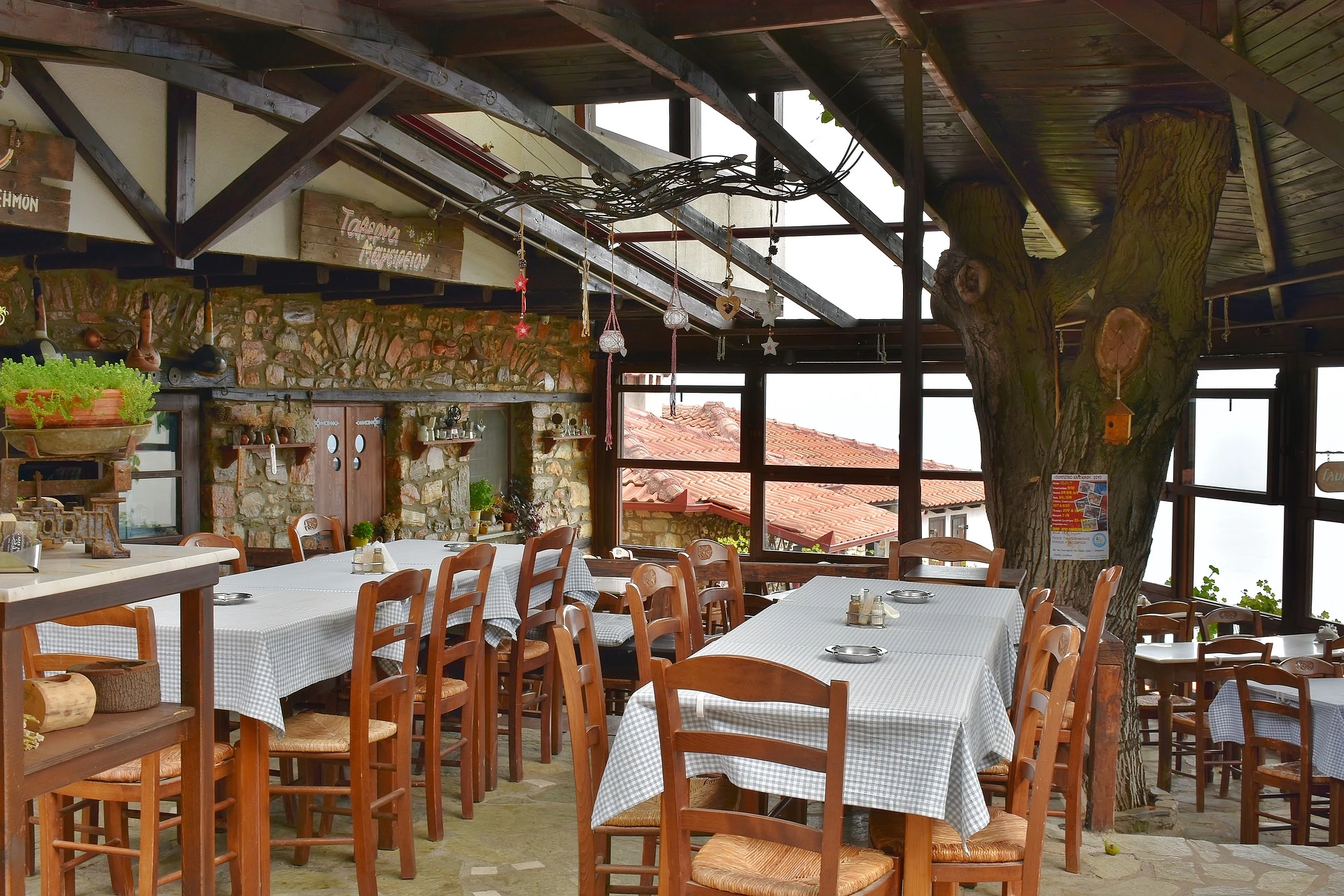
Geographic Arbitrage – The Secret to Early Retirement in Europe
Every person who researched FIRE, especially those in higher earning fields, eventually came to the realization that the USA is the easiest country to “make it” in. And this doesn’t only include the difference in the salaries for engineers, which under the same conditions and skillets are incomparable to most other countries, but on a few more factors as well.
Namely, the realization is also based on the amount of opportunities, both for career and personal growth, the free market, the amount of personal finance / investing opportunities and platforms working only with US residents, the competitive marketplace and thus lower fees, but also the lower taxes (at least compared to Western European countries), no currency risk, and the opportunity to confidently invest in your own country’s economy. But most importantly, the amount of information online, where a simple Google search can answer more questions for things most people elsewhere would be forced to hire professional help. Long story short, for many people FIRE seemed (or seems) like something that was possible only in the US.
I don’t want to take anything away from anyone and I’m not claiming that it’s easy to reach FI in America. I do think that it’s easier than in EU, though. And don’t take anyone’s word for it, check-out the median income by country, the average salary for software engineers by country, and the cost of living by country yourself. And that’s enough content for general topics, let’s get closer to what this post is really about.
The traditional approach to FIRE
With all that said, achieving FIRE is not easy anywhere in the world. If we look at it methodically, we can conclude that the biggest contributor to financial independence is living below our means. That means that we should aim to maximize our income and, at the same time, minimize our expenses. But this gets tricky, because after a certain threshold, in both directions, we can risk seriously affecting our quality of life, although luck may play a major factor in this equation.
Instead of explaining what I mean theoretically, let me illustrate with a more concrete approach. First of all, I agree with the sentiment popular in the FIRE community – lowering the expenses is the most important step one can take to get his financial situation in order. I wrote many posts on Personal Finance and Frugal Living (living below your means, setting up an emergency fund, etc.). However, after you do all these things, there is not much space to improve your situation in. And I have first hand experience with it – at this particular moment there is not much I could cut from my day-to-day expenses and I don’t own almost anything apart from my lap top and a few pairs of clothes I’m using for more than 5 years. That means that my saving potential is somewhat capped at the current rate. What I’m trying to convey is that after a certain level of discipline, we may need to focus on stretching the other side of the spectrum as well – our income.
Now, although our earning potential is theoretically limitless, based on the country and the field you’re in, you might already have an idea about what can be considered a “high salary”. For most people in most places, the earning potential will also be capped. I mean, of course, in the long tail of the distribution you can find a few gold mines, but most of the people and most of the jobs will be matched close to the mean. And when there are factors that are impossible to control, one might look into alternative ways to speed-up the process of reaching FIRE.
Financial Independence in Europe
So, having the cap at around €100k/year for most people in this continent, we are forced to look elsewhere in order to achieve financial independence without spending decades in a room to and from which we commute 5 days per week.
Okay, let’s set the stage here. Let’s take two people from two different countries, namely, Germany and Ukraine. Let’s say that they both earn well enough to afford a comfortable standard of life in their countries. To put some numbers on it, let’s say that they earn roughly double the average salary – the German earns 5000€ and the Ukrainian earns 650€ (net).
Now, let’s say that the German struggles to save more than 20% of his salary, while the Ukrainian saves slightly more than 60% consistently. That means that at the end of the month, their net worth increases by 1000€ and 400€ respectively.
The point I’m headed to is that, in absolute terms, the German will have more money, regardless of the lower savings rate. If he has FIRE aspirations, he can always cut down his spending and make some lifestyle adjustments… Or simply… Leverage the geographic arbitrage opportunities of our continent and relocate towards the south or the east. The Ukrainian will have harder time doing any of those.
Europe is the only continent in which there are countries with average salaries of >€40k and
But I’ve never lived nor been farther east than Hungary, so let me talk about what I have first hand experience with.

The Balkans
Okay, you might think that it’s just another post on geo-arbitrage, something that people were doing for years, not something mind blowing or revolutionary.
But is it?
If you’re just discarding what I’m saying based on the fact that geographical arbitrage is “nothing new”, I’d feel really confident assuming that you’re not really aware about the scale of things I’m describing.
Check this out.
Some time ago I was on vacation in Macedonia and together with 7 other people we sat in a “kafana” (a kind of restaurant popular in the Balkan region associated with Balkan food, folk music, and alcohol – the closest thing would be a tavern). We ordered a round of drinks and some salad / light snacks for starters. Then we ordered the main dish for each person (ribs, steaks, kebabs, burgers, pork chops, etc.), along with a few side dishes (fries, “nafora”, roasted bread & cheese, etc.). Of course, there were a few rounds of beers and “rakija” during this phase. And we also got two extra portions of spare ribs, just in case. At the end, we ordered desert (pancakes, cheese cakes, etc.) and wrapped it up with a cup of coffee.

This is how I spend my life.
How much do you think this costed?
Take a guess.
Spoiler alert in the next row.
The full experience costed roughly 50€.
Not per person, completely.
Ordering 4 Mojitos in The Netherlands costs the same amount.
And don’t forget, we’re talking about 8 people in a restaurant, not about buying groceries and spending the day cooking. However, while on the topic, here are some indicators, just so you can get the picture about the cost of living: a loaf of bread would cost 0,4€ and the monthly rent in the central zone of the capital is around 250€.
Let’s generalize
At this moment, I’m not aware of a place in the world where a person with 1000€ can have the same standard of life as in The Balkans. I’m sure it’s manageable in many places, but I’m not talking about extreme frugality, comparing grocery prices for life, or adapting to a totally new culture. I’m talking about abundance. In Bulgaria, Albania, Macedonia, or Serbia I (would) have a problem figuring out how to spend 1000€ for myself. I’m not exaggerating one bit, by the way.
Let’s start at the bottom, just as Drake did. Let’s use the safe withdrawal rate to calculate how big of a net-worth one would need in order to pull a guaranteed minimum salary. As you can see in the link, this number is slightly above 200€ per month for each Balkan country. That means that you would need only around €60k in liquid assets to withdraw the minimum wage forever.
But that sucks, right? Even in a LCOL country it would mean living right on the poverty line. Why not acquire €120k and pull more than the average salary every month instead? Given the COL, imagine what could you do with €500k.

Not convinced? You don’t fancy residing in a corrupt non-EU country? I got you!
Work a few more years in Western EU and move to Spain or, even better, Portugal after you’ve acquired the target amount. Or maybe maximize the purchase power of what you earned and stick to the south-east – Bulgaria and Romania have comparable cost of living as described above, but are in EU. You can literally just go there.
And what’s the best thing? You’ll always be at most 3h away from the place you currently live in. The geographic arbitrage doesn’t get better than Europe! And most importantly, none of these countries would create too big of an exposure to cultural differences, undeveloped economy, crime, and way of life.
Maybe just a lil bit.
Too many rap references in one post… 🙂
Lastly, if you’re into early retirement but you’re born and living in The Balkans, Central, or Eastern Europe, your number one concern should be to find a way to move to Western EU. Pay close attention to the third of the 3 Financial Mistakes I made to understand how big of a difference it can make.
Downsides
If you ask a random sample about how life is in The Balkans, they’ll most likely say “if you have money, it’s great“. Try it out – either get in contact with someone or ask on some subreddit or forum.
However, if I must pick one thing to illustrate the downsides, that would be the corruption. A friend of mine visited Bulgaria, but before the trip his father warned him that the traffic police is stopping foreigners for no reason and extorting payment to let them go without a ticket. Nothing can sound more like just a funny anecdote… Until it happened.
He got stopped for supposedly driving too fast. While trying to communicate that he was driving below the speed limit, he remembered his father’s words and asked: “is there something we can do about this?“. The cop answered something along the lines of “maybe we can grab a coffee and talk about it“. My friend gave him 10€, as he didn’t have time to join him for “coffee” and he was free to go.
Not that this kind of things happen everywhere or all the time, but if I had to give an advice, it would be: be self reliant. Don’t expect much from the government or the public services. Luckily, being self reliant is as close as it gets to the FIRE philosophy, so most of us wouldn’t even expect much from any government. And it’s not that bad… I’d just rather leave you be pleasantly surprised than disappointed.
Practical talk
Things to consider when moving to a country to retire early: capital gains tax, dividend tax, wealth /savings tax, tax treaties with the countries that pay you, and if applicable, income tax and VAT.
And remember to make the most out of the hand you’re dealt – don’t fold pre-flop and play the round. Because it’s the only one that you’ll ever play.
















Comments: 6
Hi Monk!
Forgive me, if I missed it – but are you planning to return to the Balkans, once you reach FI then? 😉
I’m from Denmark, and I’ve been lightly researching countries in Europe that I might consider relocating too. Unfortunately, being born and raised in a very stable, low poverty, low crime, low corruption country, the Balkans (while cheap!) doesn’t really appeal to me (for vacations, yes – for living, no) 😛
Comparing the direct living expenses – I get it. But if you start to look at the security of the well-fair system, the political stability and the well-functioning hospitals (that you ARE going to need eventually, once you get old enough 😛 ) I feel like the objectively added price for living in a country (such as Denmark – or Holland for that matter), is worth it…
I am however seriously tired of the weather here! That could potentially be the ultimate killer argument, to move to a more southern/warmer climate 😉
Don’t forget that you’re not anchored to a single country for life.
There are pros and cons to every decision in life. At the end it boils down to what’s important to you and the lifestyle you want to live.
Regarding your question: my FIRE goal is adjusted to cover my living expenses in NL, so if I move to another place, that would be a bonus. I still don’t know where or if I’ll end up. I know that I’m aiming for self-reliance (check out Why FIRE for more), so location is a smaller factor than lifestyle for me. That being said, I’m taking into account the things you mentioned, but an explanation of my approach deserves a post rather than a comment.
Hi Monk,
I also live in NL and almost approaching my FI goal.
Thinking on moving to Spain.
I am interested if you thought of wealth tax? Both NL and Spain has it, which is not fun.
Thanks for stopping by, Taras.
Maybe you didn’t notice, but we already had a little exchange about your situation on your Reddit post.
Now, about the wealth tax:
– I haven’t researched Spain in detail, but as I saw, the wealth tax went through some changes lately (being abolished and reintroduced), so it’s kinda hard to plan for it long-term. However, what I found is that for residents of Madrid this tax is not applicable. Maybe establishing residency there might be an option. You also have capital gains tax in Spain which brings me to:
– In The Netherlands, the wealth tax is a substitute for capital gains tax, as it taxes an “assumed growth”, regardless of how much return you realize or whether you invest at all. For example, if you make 1000% gains from “Company”, you’ll be taxed in the same way as if you made 2% gains. In case you don’t make any gains, capital losses are deductible from Box 3 tax.
Now, my recommendation. Just to be clear, we’re on the same side – tax sucks. But if I learned something about it, it’s that the smartest thing to do is just accepting it (and potentially minimizing it) or moving to a more suitable place.
At the end, it’s more important to build a lifestyle we’d enjoy than trying to win a fight against a country’s tax system. A last resort would be establishing residency in a wealth-friendly country and living unregistered throughout the Schengen Area. However, I don’t recommend it because it’s illegal as most countries require you to register after a few months of residency.
Apart from the Balkans, a few other cities/regions that come to mind to practice this geographic arbitrage:
Odessa
Lviv
Kyiv
Krasnodar
Budapest
South Portugal
Prague
Krakow
Wroclaw
Best continent for geo-arbitrage. 💪